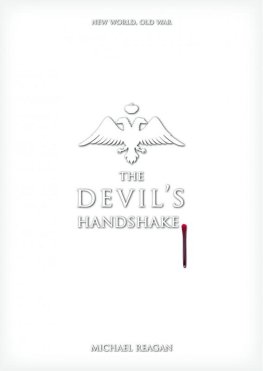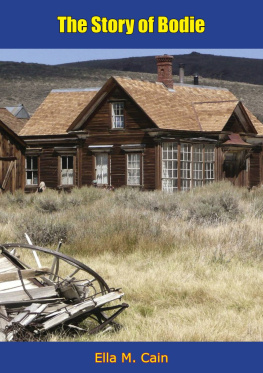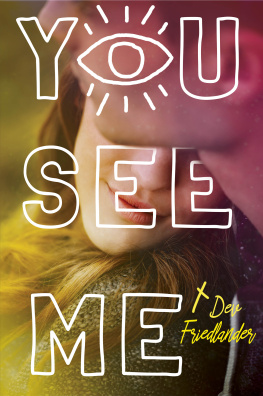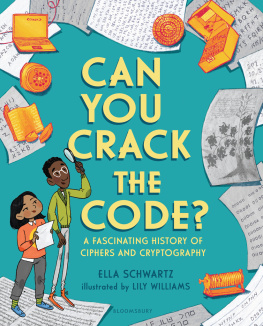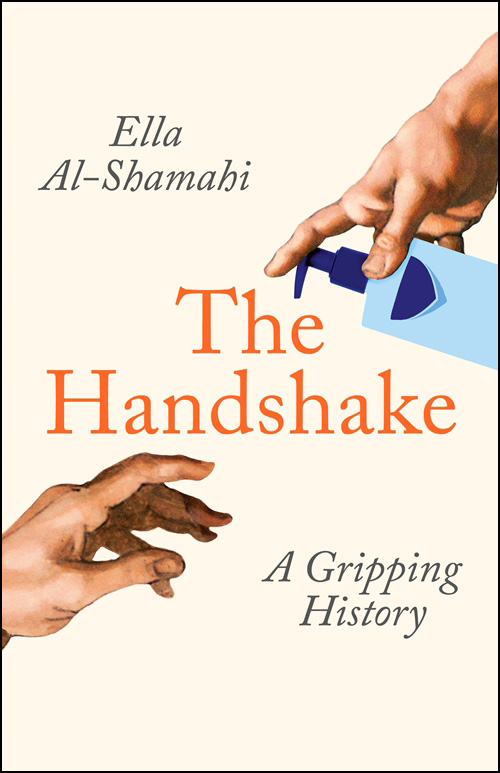Contents
Guide
THE HANDSHAKE
THE HANDSHAKE
A Gripping History
ELLA AL-SHAMAHI

First published in Great Britain in 2021 by
Profile Books Ltd
29 Cloth Fair
London
EC1A 7JQ
www.profilebooks.com
Copyright Ella Al-Shamahi, 2021
The moral right of the author has been asserted.
All rights reserved. Without limiting the rights under copyright reserved above, no part of this publication may be reproduced, stored or introduced into a retrieval system, or transmitted, in any form or by any means (electronic, mechanical, photocopying, recording or otherwise), without the prior written permission of both the copyright owner and the publisher of this book.
A CIP catalogue record for this book is available from the British Library.
ISBN 9781788167802
eISBN 9781782838371
For my favourite person, my nan Halima (Margaret) Muflahi. You are the most incredible soul and truly the most generous. Heres to hugging you again soon.
Introduction
The handshake has a pretty serious PR problem. For a long time the go-to, multipurpose, international greeting, the handshake was abruptly banished in March 2020, as the COVID-19 pandemic swept the world. A common myth about the handshake suggests that it harks back to a time when you wanted to reassure someone that there was no weapon in your hand: the open palm, the shake up and down to dislodge any weapon up your sleeve, was a sign of safety and trust. But what if you cant see what is deadly? What if, to quote Gregory Poland of the Mayo Clinic, When you extend your hand, youre extending a bioweapon? Thanks to COVID, the underlying assumption of the handshake has suddenly been turned on its head. And even when it doesnt kill you, it doesnt exactly help foster connection and trust if the minute you touch someones hand, you reach for the hand sanitiser.
Has the handshake gone forever? Is it consigned to history? Have we all been shocked into seeing what we should have realised all along: that it is sheer, reckless insanity to indiscriminately touch other peoples dirty paws? The White House COVID-19 task-force member and immunologist turned American hero Dr Anthony Fauci certainly thought so, proclaiming that I dont think we should ever shake hands ever again, to be honest with you. You may think, if the handshake has been consigned to history if it is indeed undergoing an extinction event then who better than a palaeoanthropologist, someone who studies human evolution, to speak at the wake? Except that, as a palaeo-anthropologist Im refusing to write the obituary of the handshake.
Drawing on multiple lines of evidence, I have come to the conclusion that the handshake is in fact the owner of a rich, fascinating story, hiding in plain sight. See, I think the handshake isnt just cultural, its biological, programmed into our DNA. The origins of the handshake go back far beyond antiquity, and probably beyond prehistory to before we were even a species. Our closest living relatives, the chimps, habitually use the handshake (it is more of a fingershake, really, which has many positive meanings, including lets make up), indicating that hand-shaking probably began before our two species diverged an astonishing 7 million years ago.
The handshake does, of course, have various meanings, both historically and geographically: we do the handshake a disservice to suggest that its only function throughout time has been as a greeting. Instead we should appreciate the handshake as a unit of touch (like a hug or kiss); I believe we cant underestimate the importance of touch to the human condition, it is an innate impulse. Both psychologically valuable and comforting, the handshake is one of the gold standards of human connection.
Perhaps we always exist in a negotiation between our desire for touch and our fear of contagion, as an example from my own family reminds me. My father is very health-conscious and a tad compulsive about germs; when my younger brother was born he wrote out a sign in English and Arabic saying Please Do Not Kiss Me and stuck it above the crib. He couldnt bear our massive family and a plethora of visitors kissing the new baby. We simply waited until Dad had left the room and it was showtime. The kid was adorable (for a while, at least). But if at the moment we are more of my dads way of thinking and correctly even fear the handshake, the lesson of history is that we will tip back the other way as soon as it seems safe to do so. From the Black Death to the Spanish flu, the handshake has been banned, dropped and quarantined many times and each time it has returned.
So I dont think the handshake died in March 2020 rather, its in temporary lockdown, social-distancing, quarantining, but, like most of us, going nowhere. Instead of being an obituary, this book is a tell-all biography, charting the twists and turns of the handshakes story through the lens of anthropology, cultural diversity, religion, history, sociology, biology, psychology, archaeology, gender and politics. Our prehistoric ancestors left handprints on cave walls, as if they wanted to reach through time towards us. The Greeks shook hands on the battlefield, and the Romans did so to mark marriages. The diplomatic handshake has shaped the destiny of millions, from ancient Mesopotamia to the lawn of the White House, while the handshake witnessed both the birth of democracy and its rise to prominence in the West hundreds of years later. Colonialism and globalisation have determined what kind of handshake we use (and there were and are plenty, including a penis handshake). Its history is littered with famous snubs, broken taboos, eccentric scientific experiments and national pride.
Its also deeply personal to me. I know the value of the handshake because I have lived with it and I have lived without it: for the first twenty-six years of my life what I affectionately call my fundamentalist period I followed strict Muslim law (in which the majority of Muslim jurists believe that men and women should not have any physical contact: no handshakes). It was awkward, and the tactics I adopted to avoid shaking mens hands in the UK in the noughties ranged from ingenious to ludicrous. (In fact, handshake dodgeball tactics werent an unusual topic of conversation and humour amongst my fellow devout friends.) My Muslim background, it seems, was the dry run for social distancing; it was the Dominic Cummings going to Barnard Castle.
Over the years I tried:
1. Avoidance: rarely works in a way which makes you feel good about yourself.
2. The right hand placed on the heart: I liked this as it made me seem mildly exotic, hippyish and it communicated warmth. Ive found myself reverting back to this on COVID-19 Zoom calls.
3. A salute: I thought it made me look hip and cool. In hindsight, a Muslim woman in a floor-length, dark abaya cloak in the 2000s saluting people was probably startling and perhaps off-brand.
4. Communication: I tried simply saying, Oh, I dont shake. When delivered well it seemed endearing, but my delivery was often hit-and-miss well, more hit-and-run.
5. Covering my hands with a glove or material: I decided that this was an acceptable loophole. However, I still cringe at the time I was handing over the keys of a Scout site to its manager, and, when he stretched out his arm, I quickly flicked my long sleeve down to cover my hand. I stuck to the rules! I was relieved, until my friend immediately commented on how unsubtle the whole thing was. I still worry that he might have thought that I didnt shake hands because I thought his were grubby. His hands were fine I was just a bit fundo.


